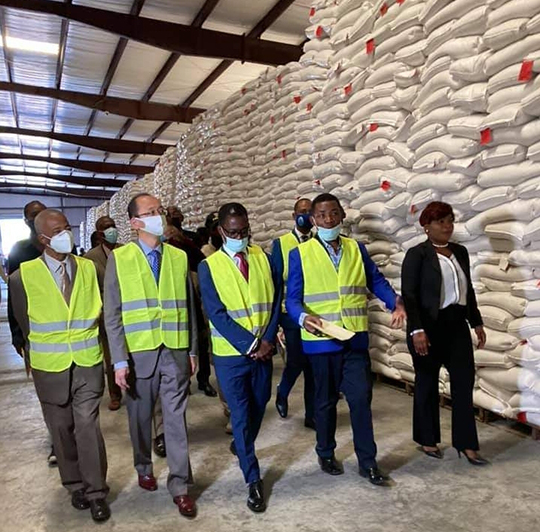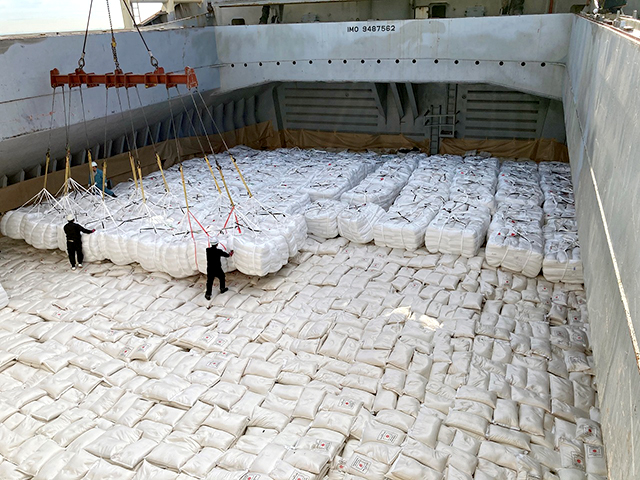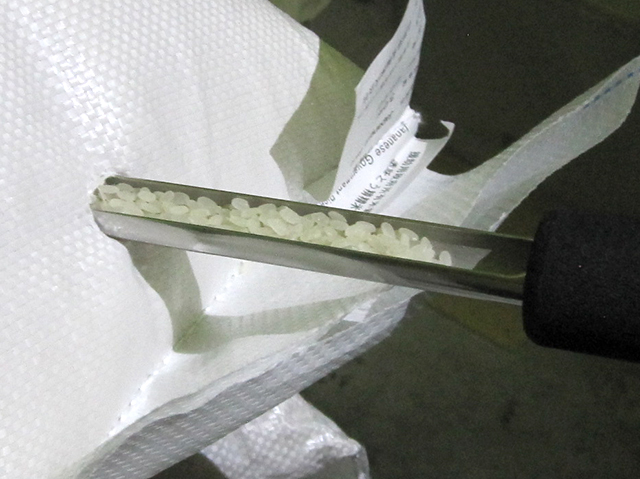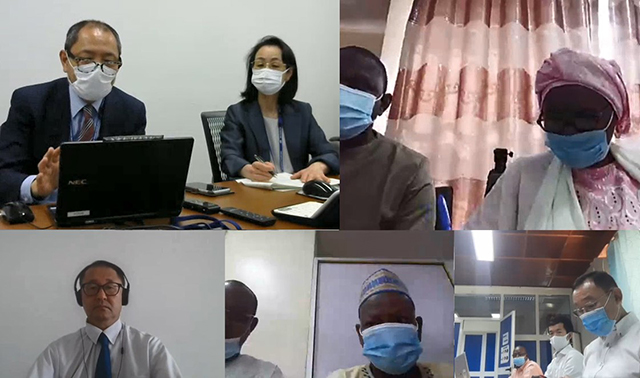Food Assistance Programme (KR) (2018–2019): The Mission and Responsibilities of Procurement Agent Handling Vital Products for Developing Countries
December 24, 2021

SUYAMA Yuki

MIZUNO Mitsuaki, Ambassador of Japan to Haiti, inspects rice deliveries
(Courtesy of Embassy of Japan in Haiti)

Japanese rice bound for Togo is loaded at Otaru Port

Pre-shipment inspection of Japanese rice

Committee meets online with Niger representatives
Our Efforts for Smooth Implementation
Procurement of Food, the Most Important Supplies in People’s Lives
2020 was a tumultuous year, in which all business practices were completely changed throughout the world. The Food Assistance Programme handled by JICS has been no exception. We faced a lot of challenges and required major changes in the implementation of the programme.
Prior to the start of the procurement process, JICS normally dispatches a mission to the recipient countries to have discussions with their governments and to conduct a primary survey in order to confirm receiving capacity of the products and other preconditions for the procurement.
However, due to severe restrictions on international travel, we were not able to dispatch our project members to the recipient countries. Further, in Japan, as we were required to reduce face-to-face contact with others, organizing tenders remotely as well as handing and receiving various necessary documents with stakeholders were some of difficulties immediately confronted us.
At the same time, food is one of the most important resources in the lives of people in recipient countries, hence the programme may not be stopped to rework its implementation. With no time to spare, we needed to tackle these challenges quickly.
Close Collaboration with Various Related Parties
Overcoming Difficulties with Flexibility and Ingenuity to Quickly Establish a Programme Implementation System during COVID-19
When the first state of emergency was declared in Japan, the outlook was uncertain, but JICS recognized that “the Food Assistance Programme cannot be stopped, we must proceed with the programme as planned.” Thus, the first priority was our mission as the procurement agent responsible for this important programme.
However, we were unsure as to whether food could be transported under abnormal global conditions unlike anything experienced in the past. We quickly investigated conditions at major ports and confirmed that transportation routes were functioning. Next, we comprehensively revised our procedures and established a system by which tenderers are able to tender bids directly without bringing documentation.
Through the diligent efforts of all JICS staff and close cooperation with domestic and foreign stakeholders, we were able to successfully deliver food assistance to all 13 countries that had completed procurement procedures in fiscal 2020 without any interruptions or delays due to COVID-19.
To ensure a stable supply of food to recipient countries, JICS will continue to address all difficulties by leveraging its flexibility and speed.
Project Overview
Overcoming Difficulties during a Global Crisis with Flexibility and Speed
The Food Assistance Programme is a type of grant aid aimed at contributing to stability in developing countries from the perspective of alleviating food shortages as well as guaranteeing human security and preventing conflicts. JICS has been involved in bilateral food assistance programmes for 20 years, procuring food since 2001 as an agent for approximately 15 recipient countries each year. As food is one of the Basic Human Needs (BHN), the procurement of staples such as rice and wheat, which are essential for people’s lives in recipient countries, requires particular speed and strict schedule management compared to other types of grant aid.

